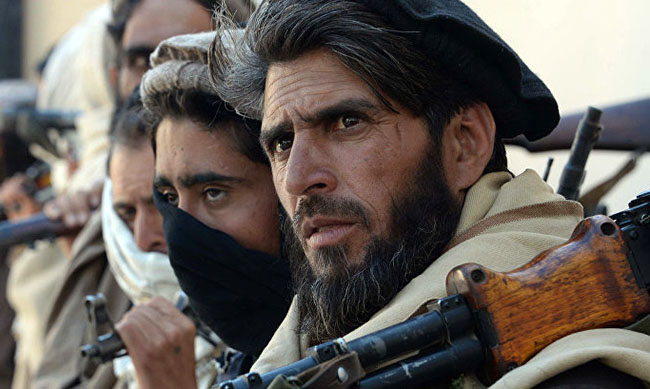The recent systematic killings and unmitigated militancy reflect the Taliban’s lukewarm response to peace and security. The Taliban guerillas have intensified their offensive and target political figures to send a terse message of war to Afghan government. According to Afghan officials, the warring factions enjoy safe havens across the border – as al-Qaeda’s founder Osama bin Laden was killed in Abbottabad of Pakistan on May 2, 2011 and Mullah Akhtar Mansour was killed in the Dalbandin area of Balochistan on May 21, 2016 – will orchestrate deadly attacks against Afghan nation in order to challenge the national unity government for two major reasons.
First, President Muhammad Ashraf Ghani does not exercise the forbearance of his predecessor towards the Taliban. He neither calls the Taliban “discontented brothers” nor release them from prisoners with impunity. Unlike Afghan former President Hamid Karzai, Ghani speaks frankly about Pakistan and uses serious tone towards the Taliban faction. The mounting civilian casualties prompted Ghani frequently to change his strategy towards the Taliban and, therefore, signed the execution of six Taliban prisoners last month in response to their heavy offensives.
Secondly, Ghani shares a close tie with the Afghanistan’s strategic aide the United States and signed security pact, which was held out against by Karzai despite the agreement of consultative Loya Jirga. Signing security pact triggered Taliban’s anger as they persist on full withdrawal of US forces. Similarly, Mullah Mansour’s death also enraged the Taliban fighters more than ever before.
Of late, the Taliban have ushered in targeting political figures systematically. As a result, the newly appointed attorney general of Logar province, Akram Nejat, was assassinated on Sunday when two insurgents attacked as his inauguration ceremony was ending, in which four other government employees and two civilians lost their lives and twenty more were wounded. This untoward incident marked the third court-related attack in Afghanistan within the past two weeks. The Taliban immediately claimed responsibility for the Logar attack. Zabihullah Mujahid, a Taliban spokesman, said the attack was revenge for the government’s execution of six Taliban prisoners last month, the first such executions in years.
Last week, Taliban insurgents, dressed in burqas, attacked in a courthouse in Ghazni Province, killing six people, most of them civilians. The Taliban also attacked a minibus carrying court employees in Kabul on May 25, killing 10 officials.
In a second attack on Sunday, a prominent member of the Afghan parliament, Sher Wali Wardak, was killed by a bomb planted in the electric meter box on the wall outside his home in Kabul.
People suffer bitterly from violence and bloodshed carried out by members of warring factions, mainly the Taliban. Civilian mortalities have, reportedly, increased by 55 per cent last month, compared to March, since more than 120 civilians were killed in conflict. The report adds that the latest anti-security incident in May was the abduction of more than 200 passengers by militants in Baghlan-Kunduz highway.
The Taliban have violated humanitarian law more than thousand and one times through spilling the blood of non-combatants and curtailing the freedom of passengers. Likewise, insurgents seek to split up the nation via stoking sectarian violence and fueling ethnic sensitivities.
It is believed that a fruitful negotiation with Hezb-e-Islami Gulbuddin (HIG), which was founded in 1977 by Gulbuddin Hekmatyar, will not be a panacea for our nation either. HIG, which resurfaced as an aggressive militant group after being sidelined by the rise of the Taliban in the mid-1990s, claimed responsibility for many bloody attacks against Coalition forces and Hamid Karzai’s administration.
By and large, Hekmatyar apparently opened the door to talks, in 2008, with the Government of Afghanistan, in part through a spring 2008 letter addressed to President Karzai. Some suggest that there may be some potential for drawing Hekmatyar away from the insurgent fight and into a constructive role but others felt mistrust.
Kabul reached out to Hekmatyar as early as 2008 in the hope of working out a peace deal. Meanwhile, Hekmatyar had a complicated relationship with the Taliban, voicing support for Mullah Mohammad Omar while coordinating attacks with the Taliban spiritual leader against foreign and Afghan forces. But at the same time, Hezb-e Islami clashed with the Taliban, particularly in eastern Afghanistan, over territory.
On February 16, 2014 the group announced it would formally participate in the upcoming presidential elections in Afghanistan. The announcement to participate in the election by the faction was seen as a blow to the Taliban-led insurgency in Afghanistan.
By March 2016, Afghanistan managed to bring Hekmatyar to the negotiating table after he dropped demands that all foreign forces leave the country. Kabul must consider whether Gulbuddin Hekmatyar’s offer to end a 15-year insurgency campaign in exchange for involvement in the government is a workable proposition can be struck. Any deal would come with a price, however. At this stage, Hezb-e Islami was seeking to become a government partner by seeking positions in civil and security institutions. Now it is said that peace agreement was signed between NUG and HIG and Hekmatyar will return to Afghanistan. Although it is the only achievement made by the Afghan High Peace Council (HPC) the question remains is that will this achievement bring peace in the country and mitigate civilian casualties. It is the readers to judge over the case by considering the mentioned facts.
Home » Opinion » A Silver Lining?
A Silver Lining?
| Hujjatullah Zia

